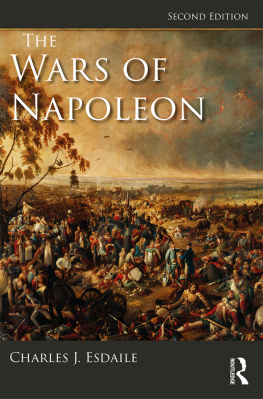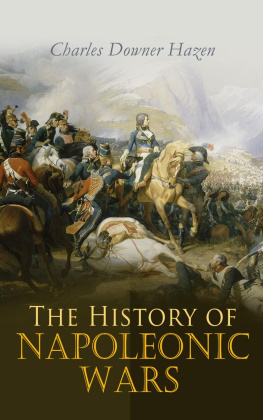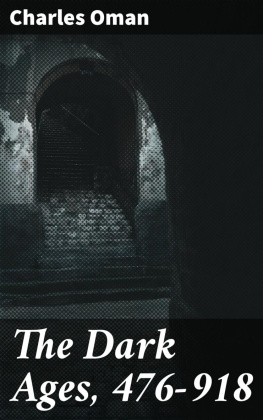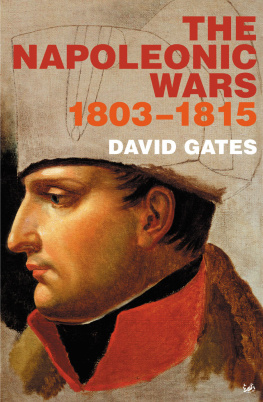
This edition is published by PICKLE PARTNERS PUBLISHINGwww.picklepartnerspublishing.com
To join our mailing list for new titles or for issues with our books picklepublishing@gmail.com
Or on Facebook
Text originally published in 1929 under the same title.
Pickle Partners Publishing 2014, all rights reserved. No part of this publication may be reproduced, stored in a retrieval system or transmitted by any means, electrical, mechanical or otherwise without the written permission of the copyright holder.
Publishers Note
Although in most cases we have retained the Authors original spelling and grammar to authentically reproduce the work of the Author and the original intent of such material, some additional notes and clarifications have been added for the modern readers benefit.
We have also made every effort to include all maps and illustrations of the original edition the limitations of formatting do not allow of including larger maps, we will upload as many of these maps as possible.
STUDIES IN THE NAPOLEONIC WARS
by
Sir Charles Oman
K.B.E. HON. D.C.L. OXFORD. HON. LL.D. CAMBRIDGE
AND EDINBURGH. F.B.A.
FOR SIXTEEN YEARS BURGESS FOR THE UNIVERSITY OF OXFORD.
CHICHELE PROFESSOR OF MODERN HISTORY.
FELLOW OF ALL SOULS COLLEGE AND HONORARY FELLOW OF NEW COLLEGE. F.S.A.,
ETC.
TABLE OF CONTENTS
Contents
TABLE OF CONTENTS
REQUEST FROM THE PUBLISHER
PREFACE
THE first of the thirteen papers included in this volume differs in character from the rest, being a general summary of the views on the history of the world held by various historians from Herodotus and Orosius down to the Whigs of the XIXth century, with my own modest conclusions subjoined.
The other twelve papers are by-products from much work on the Napoleonic period on which I have been engaged for the last twenty years. The four stories of Secret Service will, I think, be new to most readers: they illustrate in different fashions the underworld of political and military intrigue which escapes notice in general histories. All the four heroes of these tales are personages well worthy of inspection; all were bold and ready-witted; two of themRobertson and Colquhoun Grantshow a delightful fund of humour in their narratives of their doings. The papers on Maida and on Column and Line are the results of study of British tactics before the Peninsular War, necessary for a comprehension of Wellingtons methods of warfare. The discussion of Napoleons system of using his cavalry is a generalization from the whole period of the campaigns of 1800-15, into which I was led while endeavouring to discover the basic ideas which lay below the handling of cavalry by his generals in the Spanish War.
Seven of these papers have never been in print before For the others I have to acknowledge the kind permission of the Editor of Blackwood to use again General Brock and A Prisoner of Albuera, of Messrs. Macmillan for the reprinting of Wellington as Prime Minister, of the Editors of the Royal Artillery Journal for the reproduction of Maida, and of the Council of the British Academy for that of Column and Line. Historical Perspective was a Creighton Lecture delivered before the University of London, and A Defence of Military History was written at the request of Sir George Aston for a Congress at the Institute of Historical Research.
C. OMAN
OXFORD
January 28, 1929
STUDIES IN THE NAPOLEONIC WARS
I HISTORICAL PERSPECTIVE: MANS OUTLOOK ON HISTORY
THE moment that man begins to think about something more than the passing trifles and troubles of his daily life, and starts, consciously or unconsciously, to make generalizations about himself and his neighbours, their ends and objects, their past and future, he has begun to look at things in perspective. And when he extends his survey so as to draw deductions from all that he knows about the past records of mankind, he is trying to look at the world in historical perspective. It may be that his survey extends over no greater space of time than a generation or twoTales of a Grandfather may be the limit of his knowledge. Or, on the other hand, he may knowor may think that he knowsthe whole history of mankind since the Creationif he ties himself down to the idea of a Creationdown to the all-important present day. Such was the happy conviction of Orosius in A.D. 417, and of Mr. H. G. Wells in A.D. 1925. But whether his horizon of knowledge be long or short, whether it be a hundred years or a hundred aeons, the man who has started to generalize about his own position in universal history is constructing for himself an historical perspective.
What are the things that determine a mans outlook on the past and the future? I do not mean only the outlook that the historian (or would-be historian) takes, but the conceptions that governed the mind of the average man of various epochs down to our own day. It must be remembered that there are sharp breaks in the history of human thought concerning the past and the future, consequent on outward happenings in some cases, and on mental and spiritual changes in others. The conception of world-history was wholly different for a Roman of the reign of Augustus and a Roman of the reign of Honoriusbut was the change more due to the collapse of the Empire under the Barbarian Invasions, or to the triumph of the Christian over the old official Pagan ideal? Or again, the outlook of an ordinarily intelligent Frenchman, Englishman, or German in 1450 was completely different from that of his great-grandson in 1600but was that the result of the complex cultural changes which (for want of a better word) we call the Renaissance, and of the discovery of America and the Indies, and of countless advances in science? Or was it, in the main, the result of that great spiritual phenomenon which (again for want of a better word) we call the Reformation?
It is well worth while to take into consideration what are the main things that have governed mans conception of the progress of events, and the way that such conception governs his conduct in his own day. The beginnings of unconscious historical perspective came early; we may trace them in Homer and Hesiod and the Pentateuch, even in the surviving scraps of Assyrian and Egyptian records. A hint that an impious and tyrannical king who does not that which is right in the sight of the Lord means a ruined people, or that civil wars are deplorable, or that a corrupt oligarchy ends in a revolution, may be glimpses of the obvious; but historical perspective is beginning when the poet or the scribe or the annalist sets down such things as accepted facts, and applies them as warnings to the polities of his own day. Presently we reach the stage when the scribe works these observed phenomena into a little constitutional essay, as does Herodotus whenunder the easy fiction of a debate among seven Persian nobles on forms of governmenthe discusses the advantages and disadvantages of oligarchy, democracy, and monarchy. Here historical perspective has ripened into definite promulgation of doctrine. And Herodotus is only a hundred years distant from Aristotle, who was able to set forth the doctrine of the rise, progress, and decay of states (of all kinds) with a perfection of judgement that none of his successors in the sphere of political philosophy has ever surpassed. Though moderns like Montesquieu or Lord Bryce have had the advantage of a survey of two thousand more years of history than was granted to the ancient Stagirite, it cannot be said that they have added very much to his theory, or refuted any of the more important of his generalizations. And it astonishes us when we reflect that between his thought and ours there lie many centuries of the Roman Empire, in which the problems of democracy, on which he pondered so much, had become out of date, and still more centuries of the Dark Ages, in which constitutional history had harked back to that primitive contest between aristocracy and monarchy which recalled struggles that had ended in Greece three hundred years before Aristotles day.




![Charles William Chadwick Oman - Wellingtons Army 1809-1814 [Illustrated Edition]](/uploads/posts/book/291191/thumbs/charles-william-chadwick-oman-wellington-s-army.jpg)





